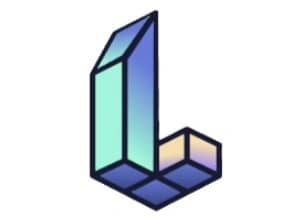Subscribe to wiki
Share wiki
Bookmark
Lunos
The Agent Tokenization Platform (ATP):Build autonomous agents with the Agent Development Kit (ADK)
0%
Lunos
Lunos is a decentralized coverage protocol that automates risk management for the Web3 ecosystem. It uses smart contracts and AVS-powered automation to address risks such as DeFi asset security and emerging blockchain threats. With AI-driven mechanisms, it enables fast claim processing, adapts to evolving risks, and integrates with various Web3 applications without intermediaries. [2]
Overview
Lunos is an on-chain risk protection platform designed to automate claims processing and enhance security across Web3. It addresses inefficiencies in traditional coverage models by leveraging Autonomous Verifiable Services (AVS) and AI-driven risk assessment to provide real-time monitoring, automated payouts, and decentralized claim validation. By integrating proactive security measures like Block Alerts with automated coverage, Lunos enables DeFi protocols, stablecoins, and staking validators to mitigate risks before they escalate. Built on EigenLayer's decentralized infrastructure, it removes governance delays and human bias, ensuring seamless, trustless protection for Web3 ecosystems. [10]
Technology Architecture
RWA Risk Management
Lunos is developing an AI-driven claims assessment model using EigenLayer's Actively Validated Services (AVS) framework to automate and improve claims processing while maintaining decentralization. AVS enables trustless validation, reducing inefficiencies and delays. The system enhances risk management by ensuring transparent and secure assessments without human bias. It integrates with broader Web3 ecosystems, scaling alongside innovations. Within Lunos's protocol, AVS facilitates automated claim validation, strengthens risk assessment frameworks, and expands ecosystem integration. It also supports zkSYS scalability through AI Sentry Nodes and provides restakers with validation opportunities for real-world and on-chain insurance needs. [3]
AI Agents
Lunos's AI agent automates claim assessments within a decentralized system. Integrated into the AVS operator, it processes claims off-chain while remaining linked to blockchain protocols for transparency and security. When a claim is submitted, the AI gathers data from on-chain events, external sources, and user input. It uses machine learning and natural language processing to evaluate claims based on historical data, policy rules, and risk factors, producing a validity score and decision output. The assessment is validated through cryptographic proof and confirmed by multiple independent operators before being recorded on-chain. This system enhances the efficiency of on-chain insurance claims while maintaining decentralization and security. [4]
UNO
UNO is the native token of the Lunos platform, with a maximum supply of 384,649,206 tokens. It is used to purchase insurance, receive claims, and cover transaction costs related to Risk Pool investments. The token is a core platform component, enabling various transactions and interactions within the ecosystem. UNO operates as a multi-chain asset, deployed on Ethereum (ERC-20) and Binance Smart Chain (BSC) to maximize accessibility and efficiency. This dual-network presence enables users to leverage lower transaction fees on BSC while maintaining Ethereum's security and liquidity. The token is integrated into Lunos' decentralized coverage ecosystem, allowing staking, governance, and coverage purchases. [5] [9]
Token Distribution
- Insurance Liquidity: 36.32%
- Treasury: 44.31%
- Community Incentive & Rewards: 10.59%
- Team: 8.78%
Lunos DAO
Lunos is transitioning to a decentralized governance model where community members propose and vote on protocol changes. Governance decisions influence product listings, SSIP pool launches, reward adjustments, parameter updates, council elections, contract upgrades, and treasury management. The DAO's real-world asset (RWA) strategy focuses on secure infrastructure and in-house product development. It integrates tokenized RWAs into DeFi and addresses associated risks, such as de-pegging and smart contract vulnerabilities. Lunos plans to launch RWA products, including tokenized U.S. Treasuries, to improve capital efficiency and generate revenue beyond the crypto market. Additionally, the DAO aims to offer on-chain coverage and security services for other DAOs, optimizing treasury management. With billions in DAO treasuries, effective utilization could create significant value for Lunos and its partners. [6] [7]
Olympus Council
The Olympus Council is a division within the Lunos DAO responsible for emergency decision-making. It has authority over key functions such as contract upgrades and holds multi-signature control over the protocol. To maintain decentralization, council members are elected by veUNO holders on a rolling basis during governance epochs. Elected members receive monthly compensation from the DAO treasury for their contributions. [6]
veUNO
veUNO is Lunos's governance token, based on the vote-escrowed model introduced by Curve Finance. Users lock UNO tokens for up to four years to receive veUNO, with longer lock durations granting more voting power. veUNO holders influence reward emissions to SSIP pools, affecting liquidity distribution across the protocol. They also vote on governance decisions, such as adding SSIP pools and adjusting solvency and capacity ratios. veUNO holders receive platform fees and boosted rewards, but voting power decreases as the unlock date approaches. [8]
See something wrong?
The Agent Tokenization Platform (ATP):Build autonomous agents with the Agent Development Kit (ADK)
